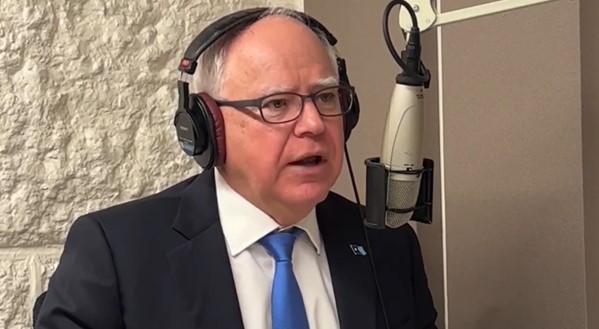During a recent interview with Minnesota Public Radio, Governor Tim Walz of Minnesota expressed surprise and confusion over why he and his fellow Democrats failed to make significant headway in the 2024 presidential election. He specifically noted his belief that his perceived lack of wealth could serve as an appealing “flex” against Donald Trump, a billionaire, stating, “I thought it was a real flex when the Wall Street Journal pointed out that I might have been the least wealthy person to ever run for vice president.” Walz’s comments became a topic of mockery on social media, highlighting a disconnect between his views and the realities of voter sentiment.
Walz detailed his frustrations with the campaign, asserting that he focused primarily on advocating for middle-class values and that he believed the Democratic party had strong ideas for improving American life. He appeared to struggle with the contrast between his background as a country attorney and high school teacher against Trump’s wealth and business acumen. This reflection suggested a naive understanding of what resonates with voters, particularly the appeal of authenticity over affluence. Walz’s remarks prompted a wave of criticism online, where many observers questioned his grasp of the voter psyche and ability to connect with ordinary Americans.
Critics on social media were quick to highlight what they considered Walz’s hypocrisy regarding his own financial situation. Despite presenting himself as a frugal, relatable candidate, many pointed to his past travel, including over 30 trips to China, as incongruent with the average American experience. This discrepancy raised questions about Walz’s claims and his perceived relatability, leading to further ridicule. The narrative that emerged painted Walz as out of touch, struggling to comprehend the appeal that figures like Trump have for many voters who prioritize results and a perceived authenticity over pedigree or political pedigree.
The backlash didn’t stop there, as this interview compounded a recent episode where Walz similarly expressed disbelief over the election outcome. In a separate interview with KSTP-TV, he reflected on his campaign’s momentum and claimed to have felt a positive atmosphere at rallies and local interactions. However, the reality of the voting results starkly contradicted his impression, leading him to admit surprise and disappointment. Critics seized on this naivety, suggesting that Walz’s optimism revealed a deeper disconnect from the electorate and indicated a broader issue within the Democratic Party’s understanding of voter priorities.
Walz’s self-assessment raised concerns not only about his judgment but also about the Democratic Party’s overall messaging strategy. By framing his wealth as a point of pride, he seemed to underestimate voters’ desires for genuine representation and effectiveness over affluence. Furthermore, many observers remarked that this lack of self-awareness may reflect broader issues in Democratic campaigning, where candidates struggle to frame their narratives in a way that resonates with the core concerns of middle-class Americans.
Going forward, Walz and other Democrats may need to reassess their approaches to relating to voters, especially as they prepare for future elections like the one in 2024. A fundamental understanding of what drives voter allegiance — including the values of authenticity, relatability, and results-oriented governance — will be paramount. By recognizing and addressing these disconnects, Democratic leaders like Walz could better position themselves for success in future political contests. The contrast between their ideals and the realities experienced by everyday Americans must be bridged if they hope to reclaim any lost ground in the electoral landscape.

